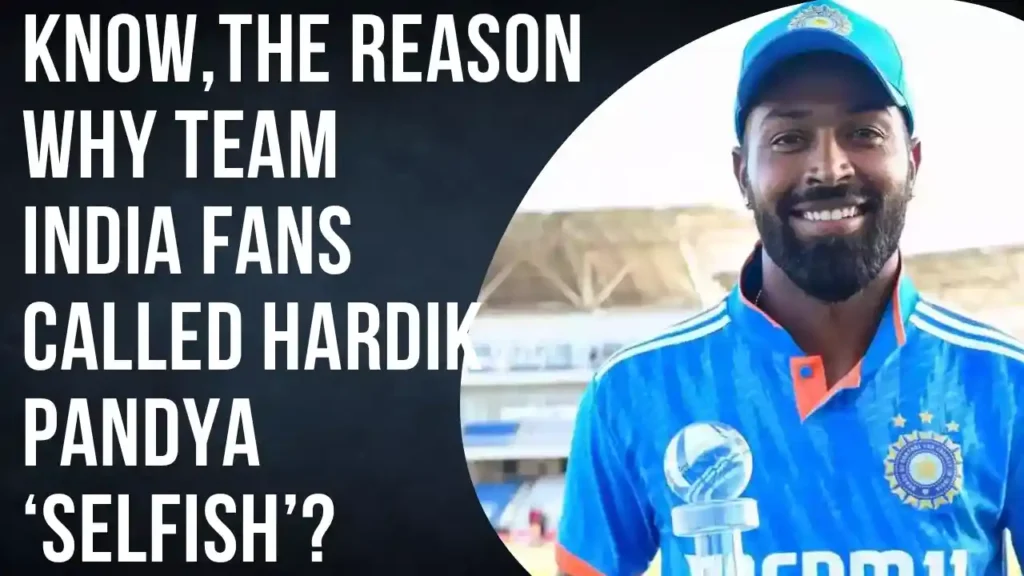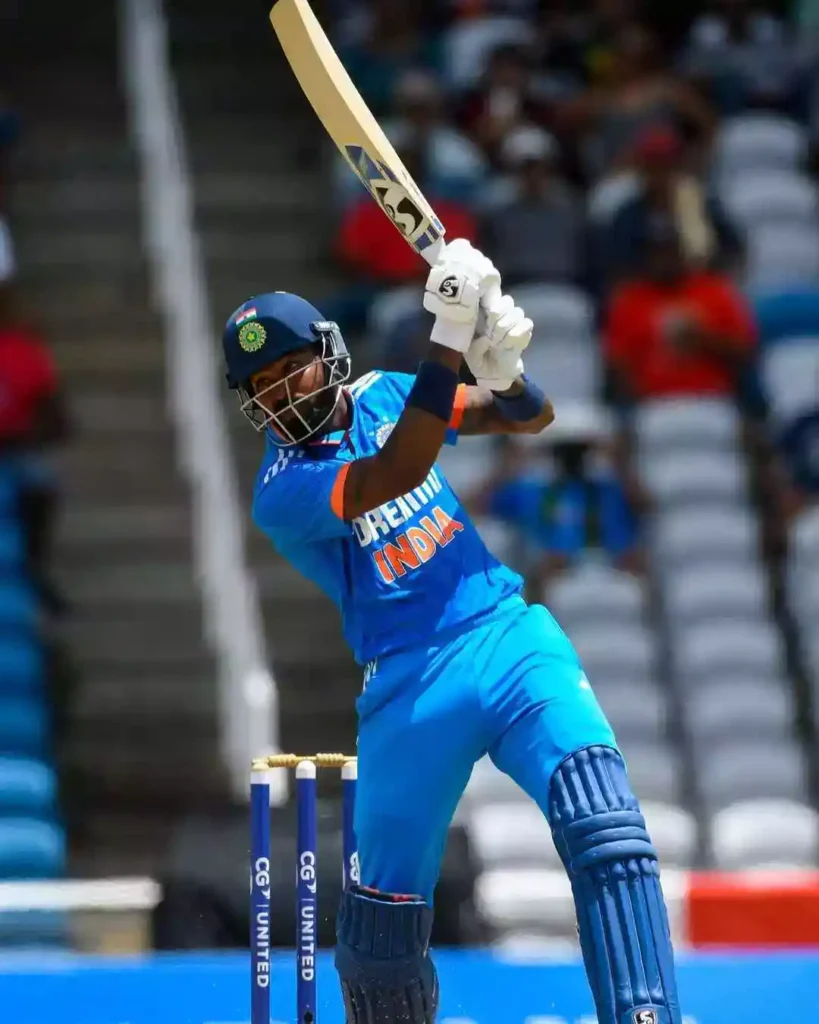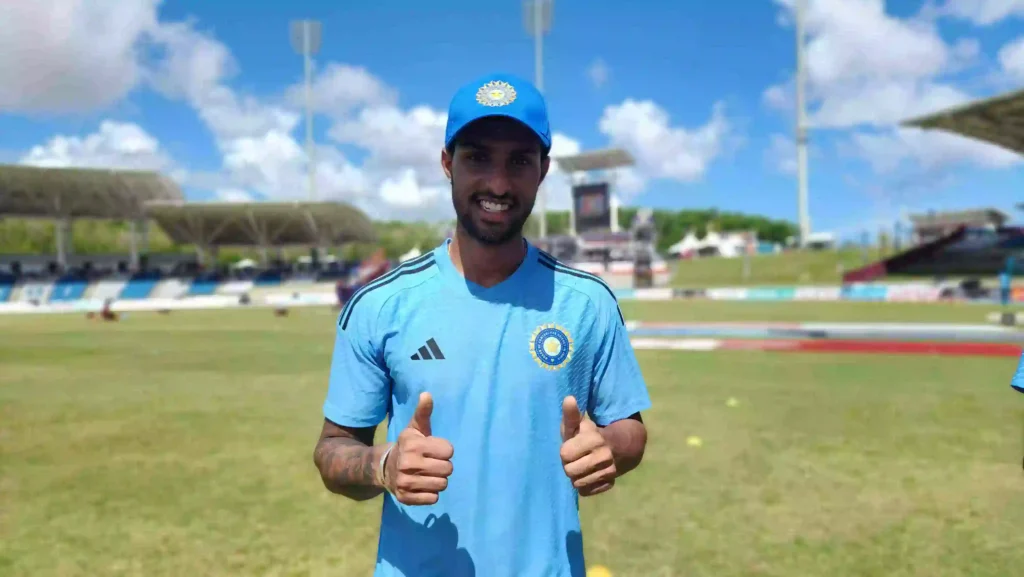
Cricket enthusiasts have long been engaged in conversations revolving around Hardik Pandya’s performance on the field. His recent actions during the IND vs WI series have ignited debates and controversies, with fans labeling him as ‘selfish.’ In this comprehensive article, we delve into the intricate details of the series and examine the reasons behind the criticism that Pandya faced.
Hardik Pandya’s Captaincy Struggles
The article commences by shedding light on the challenges that Hardik Pandya encountered as the captain of the Indian cricket team. After experiencing consecutive defeats in the T20 matches under his leadership, the pressure on Pandya escalated.
Leading a squad primarily composed of young IPL talents, India’s struggle was evident as they endeavored to secure a series victory against the West Indies.
A Glimpse of Victory
Notwithstanding the adversities, India managed to turn the tables in their favor. The third T20 match witnessed India emerging victorious over the West Indies by a margin of seven wickets.
Pandya, exhibiting his prowess both as a bowler and a batsman, played a pivotal role in clinching this triumph. Nonetheless, it was his actions toward the end of the match that garnered substantial attention.
Selfish accusation on Hardik Pandya
The article delves into the specific incident that gave rise to the ‘selfish’ accusation against Pandya. As the match drew to a close, Pandya delivered a remarkable six that secured the team’s victory.
While such a feat would typically be celebrated, it paradoxically invoked criticism from fans. They viewed Pandya’s six as a self-centered move that deprived a young teammate of the chance to shine.

The Comparison with Dhoni
The article further explores the connection between Pandya’s action and a prior incident involving MS Dhoni. It highlights a moment from 2014 when Dhoni intentionally refrained from hitting the winning run in a T20 World Cup match, allowing Virat Kohli to seize the spotlight.
This parallel between the two occurrences sparked discussions among fans, directing attention towards Pandya’s actions in a different context.
Fans’ Discontent and Social Media Outcry
Delving into detail, the article examines the discontent prevailing among fans. The episode involving Pandya gained widespread attention on various social media platforms, providing fans a platform to voice their disappointment and disapproval.
The article probes the impact of this digital outcry on Pandya’s reputation and its resonance among fans who recalled Dhoni’s analogous actions.
Tilak Verma’s Role
This segment of the article offers insights into the pivotal role played by Tilak Verma during the match and the series as a whole. His partnership with Suryakumar Yadav proved instrumental in securing India’s victory. Regrettably, Pandya’s six overshadowed this achievement.
The article explores the circumstances surrounding Tilak’s nearly half-century and how Pandya’s choice to strike a six influenced his performance.

Consequences of Pandya’s Action
The article delves into the ramifications of Pandya’s action, specifically examining how it impacted team dynamics and Pandya’s image.
The divisive nature of fans’ opinions is highlighted, with some endorsing Pandya’s assertive move while others criticizing it. This incident also ignited discussions about the role and responsibilities of a captain.
https://ipllivecricketscore.com/lsg-vs-mi-highlights-match-63-ipl-2023/
Pandya’s Stump Mic Moment
A notable facet of the incident involves Pandya’s refusal to play a shot for Tilak Verma. The article delves into how this interaction, captured by the stump mic, intensified the critique. Pandya’s assertion, “You have to finish, play till the end, not out makes the difference,” not only underscored his approach but also triggered further debates.
Parallel to Dhoni’s Past
The article draws to a close by drawing parallels between Pandya’s action and Dhoni’s history. It reflects on how Dhoni’s analogous decision in the past led to distinct outcomes, underscoring the intricate nature of such actions in cricket.
The divergent results emphasize the complexity associated with captaincy and decision-making in high-pressure situations.
In the realm of cricket, every move is susceptible to scrutiny, and Hardik Pandya’s recent incident is no exception. His choice to hit a crucial six and secure victory has ignited conversations about leadership, responsibility, and team dynamics.
As fans continue to express their opinions, it becomes evident that cricket serves as a reflection of the intricate facets of human nature.
Why did fans criticize Hardik Pandya’s six?
Fans criticized Pandya’s six, perceiving it as a self-centered act that deprived a young teammate of a milestone opportunity.
How does Hardik Pandya’s action compare to Dhoni’s past actions?
Pandya’s action mirrors Dhoni’s past decision, where Dhoni deliberately allowed his teammate to shine by not taking the winning run.
What impact did the social media outcry have?
The social media outcry intensified the criticism against Pandya and prompted discussions about a captain’s role in cricket.
How did Tilak Verma contribute to the match’s outcome?
Tilak Verma’s partnership with Suryakumar Yadav played a crucial role in India’s victory, but Pandya’s six overshadowed this contribution.
What does this incident reveal about cricket dynamics?
This incident underscores the intricate aspects of captaincy, decision-making, and the emotional dimensions of cricket, where every move is open to interpretation.





